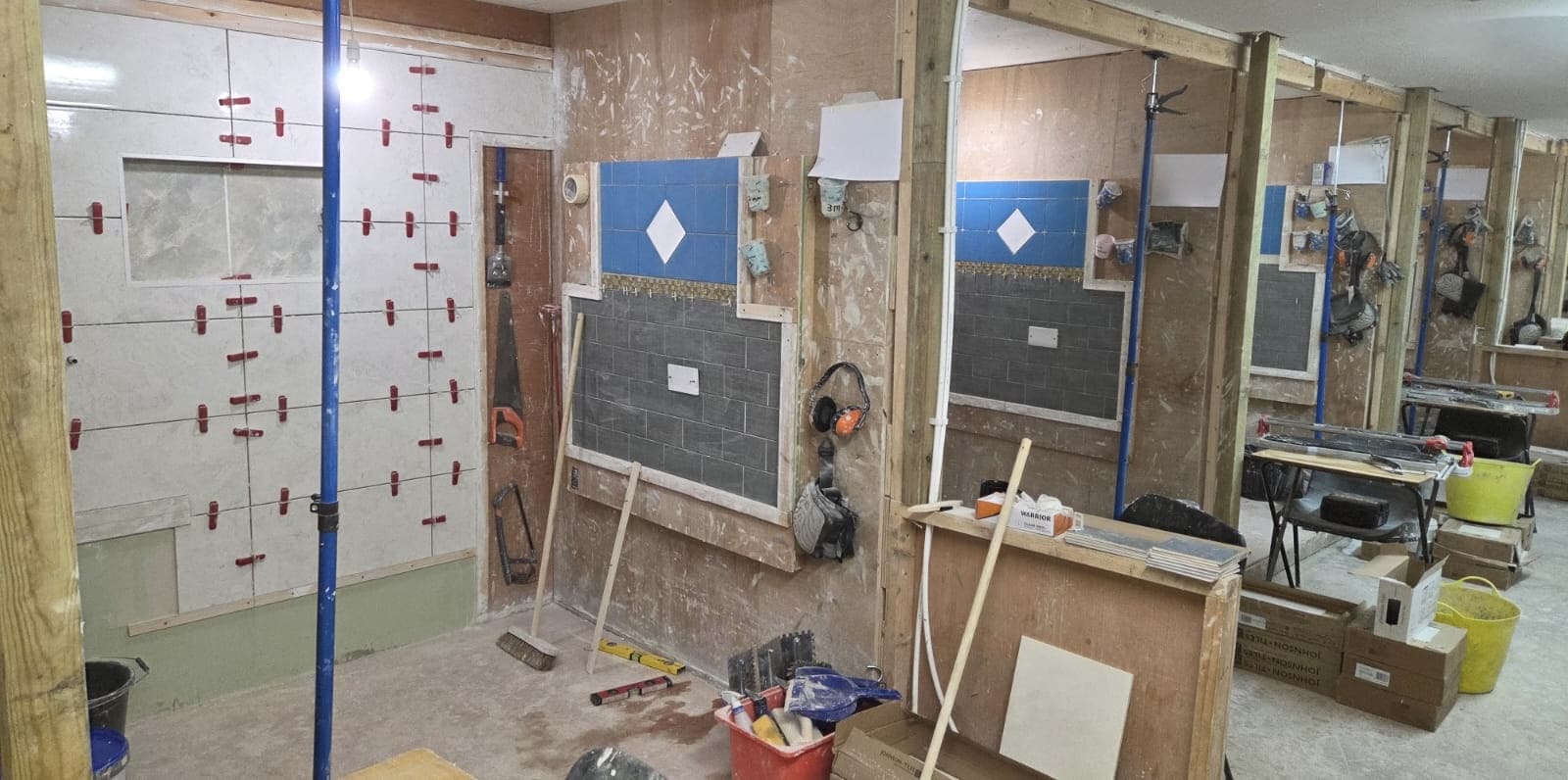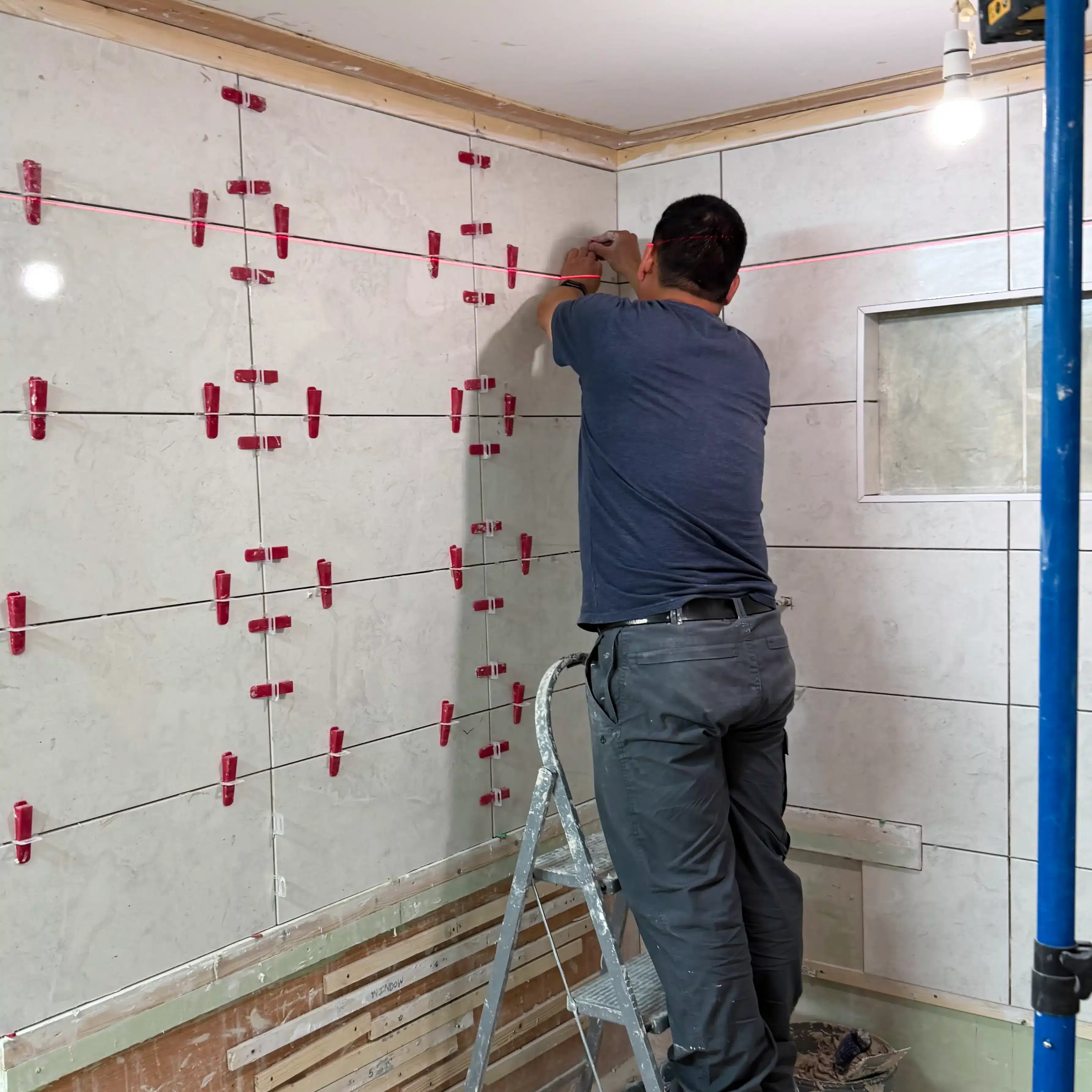Updated: 27 January 2026
Choosing the right construction training centre is one of the most important decisions you’ll make when starting a new trade career or upgrading your skills. The quality of your training directly affects your confidence, your practical ability, and how quickly you can start taking on real work. This guide explains what to look for, what questions to ask, and how to compare centres side-by-side without getting distracted by marketing.
TL;DR: How to pick the right training centre
- Prioritise hands-on training: ask for the practical vs classroom split.
- Check the bays and setups: realistic bathrooms/kitchens/walls/floors beat tiny practice boards.
- Verify tutor experience: trade background + coaching while you work (not just demos).
- Compare outcomes: what can you confidently do by the end of the course?
- Look for proof: real learner work, consistent reviews, and transparent course outlines.
Quick comparison checklist (use this when calling centres)
- Do learners have individual training bays, or are multiple people sharing a small area?
- What % of the course is hands-on vs classroom?
- Are tools and materials included (and is there enough to repeat tasks)?
- What is the typical class size per tutor?
- Do you train on realistic setups (e.g., bathrooms/kitchens/large bays), not just boards?
- Is there post-course support when you start doing real jobs?
- Are course photos/videos real training (not stock images)?
- Are pricing, deposits, and policies transparent?
- Can you visit while courses are running?
Construction training centre comparison table
Use this table to compare providers quickly. The “What to ask” column is written exactly how you can phrase it on a call.
| What to compare | What “good” looks like | What to ask | Red flags |
|---|---|---|---|
| Hands-on time | Most days are practical with short, focused demos | “How many hours per day are hands-on?” | Vague answers / heavy theory to reduce materials |
| Training bays | Spacious bays and realistic job setups | “Do learners have individual bays and real setups?” | Sharing tiny boards / cramped spaces |
| Tools & materials | Enough to repeat tasks and build confidence | “Are tools/materials included, and can we repeat tasks?” | One-and-done tasks, limited materials |
| Tutor experience | Trade-experienced tutors who coach real problems | “Who teaches, and what’s their trade background?” | Generic “trainers” across unrelated trades |
| Qualifications route | Clear explanation of skills training vs assessment | “What qualification route is available, and what does it prove?” | Overpromising / unclear qualification claims |
| Support after training | Ability to contact tutors when you start jobs | “Can I get help after the course ends?” | No support, or only generic resources |
| Proof & reviews | Consistent reviews + real learner work shown | “Can I see recent learner work or a gallery?” | Stock imagery, no evidence, curated-only claims |
1) Qualifications & accreditation explained (what it really means)
Many learners search for “accredited” training. The key is understanding what’s included and whether a course is primarily skills training, assessment-focused, or a mix of both.
Before you book, clarify:
- Which qualification route is available (if any), and whether it’s included or optional
- What units/assessments are covered, and how long they take
- What outcomes you should realistically achieve by the final day
Tip: if you’re comparing centres, ask them to send the course outline and talk you through exactly what you will complete each day. Clear, specific answers usually indicate a better-run programme.
2) Visit the training centre in person (the fastest quality check)
A reputable centre should be comfortable with visits. If possible, visit near the end of a course so you can see the standard of finished work, the training bays, and how tutors coach learners through problems.
Common red flags:
- No access to workshops or “viewing not allowed”
- Overcrowded bays and little tutor time
- High-pressure sales tactics
If you’d like to visit, start here: Location & contact.
3) Look for real, practical facilities (not just small practice boards)
Construction is hands-on — your training should be too. Realistic setups and repeatable tasks build confidence faster and transfer better to paid work.
| Training feature | High-quality centre | Low-quality centre |
|---|---|---|
| Realistic job setups | Yes (realistic areas, repeatable tasks) | No (tiny boards only) |
| Tool access | Full access for practical work | Limited or shared tools |
| Practice volume | Enough materials to repeat and improve | Minimal repetition |
| Modern equipment | Up-to-date tools and safe methods | Outdated kit / poor safety approach |
4) Tutor experience matters (real trade background = better coaching)
Experienced tutors don’t just demonstrate — they help you solve the real problems that show up on jobs: awkward cuts, imperfect walls, sequencing, planning, and avoiding mistakes that cost time and money.
- Ask about their trade background and typical work they’ve done
- Ask how they handle troubleshooting during practical tasks
- Check whether you’ll be coached while you work (not just watching)
5) Class sizes and learner support
Smaller groups generally mean more feedback and faster progress. Ask how many learners are allocated per tutor and how the day is structured.
- Smaller groups usually mean more correction and coaching
- Clear structure helps you know what you’ll achieve each day
- Support after training is valuable when you start real jobs
6) Course range and progression routes
A strong centre usually offers clear routes for beginners and progression options as you build confidence — including multi-skilled training if your goals involve bathrooms, kitchens, or property maintenance work.
- Beginner courses that start from fundamentals
- Intensive options for faster progress
- Weekend options for people training around work
- Multi-skilled routes for broader earning potential
7) Reviews, testimonials, and proof (how to filter the noise)
Look for consistent reviews and evidence of real training. The best proof is a combination of: recent learner work, photos/videos that match the syllabus, and the ability to visit in person.
- Verified reviews across time (not just a cluster of recent posts)
- Real learner work (multiple angles, multiple projects)
- Specific testimonials (what the learner achieved)
8) Location, travel, and accommodation
Many people search “near me”, but travelling can be worth it if the training quality is significantly better.
If you’re travelling, check travel routes, parking, and accommodation options before booking.
If you’re attending from further away, see: Accommodation options.
9) Price vs value (avoid choosing purely on the cheapest fee)
Cheap training often cuts corners on materials, tutor time, and realistic practice. When comparing providers, consider what you’ll be able to do independently afterwards.
Higher-value training typically includes:
- Tools and materials included
- Realistic practical setups and repeatable tasks
- Clear outcomes by the end of the course
- Support after training ends
Optional: check a centre’s background
If you’re comparing providers and want extra context, it can help to understand a centre’s background and how it has developed over time. You can read: History of Construction Skills College.
Compare routes by trade (course hubs)
Frequently Asked Questions
What should I look for when choosing a UK construction training centre?
Prioritise hands-on training time, realistic training bays (not just small boards), experienced trade tutors, small class sizes,
transparent pricing, and clear course outcomes. If possible, visit in person to see the standard of learner work and tutor support.
Are longer construction courses always better?
Not necessarily. Compare course outlines and ask how many hours are practical. A shorter course with high hands-on training can build stronger confidence than a longer course with limited practice.
How do I compare qualifications and accreditation between training centres?
Ask what qualification route is available, whether it is included or optional, what units or assessments are covered, and whether the course focuses on practical skills, assessment preparation, or both. The best choice depends on your goals.
Is it worth travelling for construction training in the UK?
It can be worth travelling if the centre offers better facilities, more hands-on practice, and stronger tutor support.
Consider travel time, accommodation options, and whether the course structure helps you become confident to complete work independently.
How can I tell if a construction training centre is legitimate?
Look for transparent course outlines and pricing, real photos or videos of training, consistent independent reviews, and a willingness to let you visit. Avoid centres that refuse visits or rely on stock images and high-pressure sales tactics.






